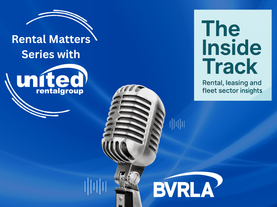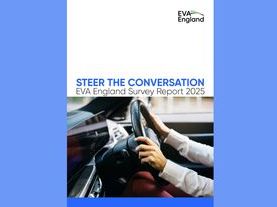The Government has published a Green Paper outlining proposals for a new regulatory framework that will be necessary to deliver the 2030 and 2035 phase out targets.
The 56-page consultation document, CO2 emissions regulatory framework for all newly sold road vehicles in the UK, poses some very important questions for BVRLA members.
CO₂ regulation for Cars and Vans
Two approaches to deliver the government’s commitments are being considered:
Option 1 - base future UK CO2 emissions regulations on the current framework, with more ambitious efficiency targets
This builds on the existing framework that we already have in the UK and would align the targets with both our wider carbon reduction commitments and with the 2030/35 phase out dates. This option would see CO₂ targets being 'turned up' with targets set at 0g CO₂/km by 2035, ensuring that all new cars and vans are zero emission at the tailpipe by 2035.
While based on a 'grammes CO₂/km' metric, the practical impact is that as the overall target gets tougher and tougher, manufacturers would be required to meet their individual target through the sale of increasing numbers of zero emission vehicles.
Option 2 - introduce a UK zero emission vehicle (ZEV) mandate alongside CO₂ regulations.
This would set targets requiring manufacturers to sell a certain percentage of zero emission vehicles each year. Manufacturers could earn 'credits' for selling and registering qualifying vehicles and would be required to hold enough credits at the end of each calendar year to meet the target.
Although a ZEV mandate would guarantee a certain percentage of ZEVs or significant zero-emission capable vehicles being sold, if implemented on its own it could have the unintended consequence of leaving a proportion of a manufacturer's fleet effectively unregulated in CO₂ terms. This means a ZEV Mandate would need to be accompanied by a CO₂ regulatory framework to ensure a reduction in emissions in line with the UK's commitments.
Derogations and Exemptions
Under the current UK regulations, a number of derogations exist both at manufacturer level, for small volume and niche manufacturers and at individual vehicle level, such as exemptions for emergency service vehicles and military vehicles. There are also exemptions for special purpose vehicles which will be more challenging to decarbonise i.e., wheelchair accessible vehicles, ambulances, and hearses.
There is no mention of specialist vehicle exemptions where battery power is likely to be insufficient due to needing the power to perform tasks other than driving but there is a question about the new regulatory framework and whether exemptions or modified targets for certain specialist vehicles are required.
Defining Significant Zero-Emission Capability
The options being considered are:
- Grammes of CO₂ per kilometre (gCO₂/km) – this is the established metric for measuring emissions from vehicles. It does not directly demonstrate zero emission capability, but it is correlated.
- Continuous zero-emission range – this is measured as part of the current testing process for PHEVs and battery electric vehicles and demonstrates zero-emission performance. It is also referred to as the ‘all-electric range’. This metric would not be applicable to non-plug-in hybrids which do not demonstrate a consistent continuous zero-emission range.
- Percentage of journey time spent in zero-emission mode – this metric has been used in independent studies to demonstrate the zero-emission capability of non-plug-in hybrids. It is not an established metric and it is not measured as part of the current testing regime.
BVRLA view
The Government’s very ambitious timescales leave little room for error. It is therefore essential that policymakers engage with a wide cross-section of stakeholders, including the BVRLA, fleet operators and motorists to get the end user perspective. This will ensure that the Government gets the regulations right from the off and that these will support our sector by guaranteeing there is an adequate supply of electric vehicles to the UK and that fleets with more challenging EV operating models are supported.
The BVRLA will be submitting a formal consultation response before the 22 September deadline and members are invited to share views on the issues of appropriate CO2 regulations, exemptions, and zero-emission capabilities by emailing [email protected].
Details of all open consultations and previous consultation responses can be found on the Consultations page of the BVRLA website.




